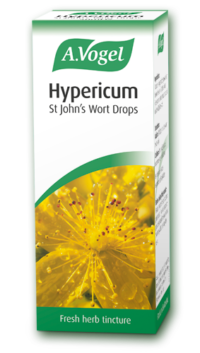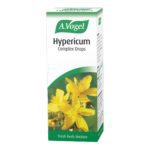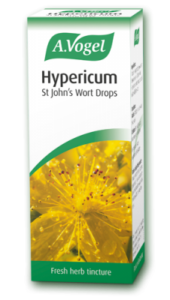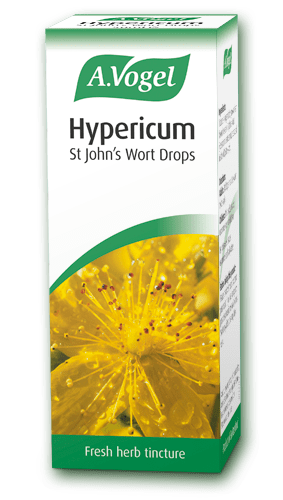






Hypericum 50ml A Vogel
£12.99 Original price was: £12.99.£10.39Current price is: £10.39.
Hypericum
A Vogel Hypericum perforatum (St. John’s wort), as juices, extracts, teas, tinctures, oleum’s, powders, and granules, use as oral medication and a vulnerary since record history. Hypericum extracts.
That meet recognized standards are indicate therapeutics for mild to moderate depression. There is peer-reviewe medical literature to support efficacy for this indication.
The side effects of St. John’s wort extracts are generally less than those reported in double-blind studies for non phytopharmaceuticals.
St. John’s wort are use as vulneraries, and there is evidence they promote uncomplicate cicatrisation of wounds. Oleum’s of hypericum have antimicrobial action.
Hypericum extracts upregulate and downregulate gut and hepatic CYP enzymes and xenobiotic transporters, and by these mechanisms they can alter the pharmacokinetics and efficacy of concurrent medications.
The dose-limiting side effects are photosensitization and gastrointestinal symptoms.
Health Benefits
St. John’s wort is widely believe to boost mood and provide some relief from depression, but it’s not exactly clear how it works. Researchers suspect that ingredients in the herb (hypericin and hyperforin).
May increase levels of certain brain chemicals, like serotonin. People with depression often have low levels of serotonin and other neurotransmitters.
One reason people may wish to try the natural remedy for depression (as opposed to antidepressants that can increase serotonin).
St. John’s wort tends to have fewer side effects than medications.2 The herb is also being explored for the following health concerns:
- Anxiety
- Menopause-related symptoms
- Premenstrual syndrome (PMS)
- Seasonal affective disorder (SAD)
- Smoking cessation
- Viral infections



















Reviews
There are no reviews yet.